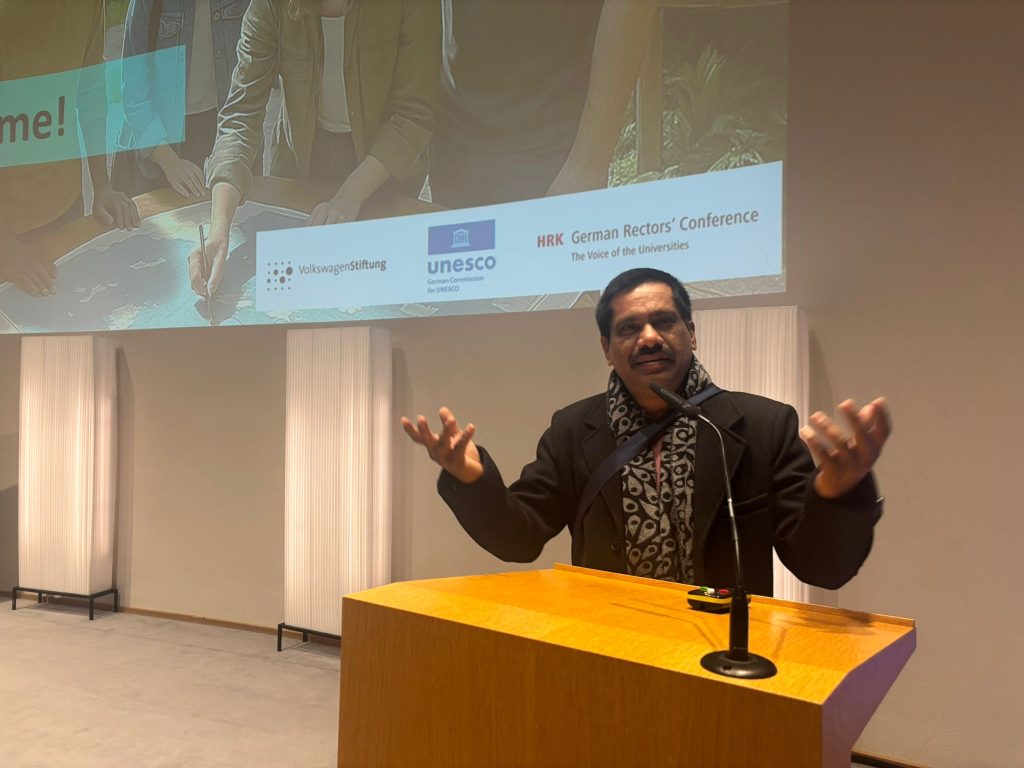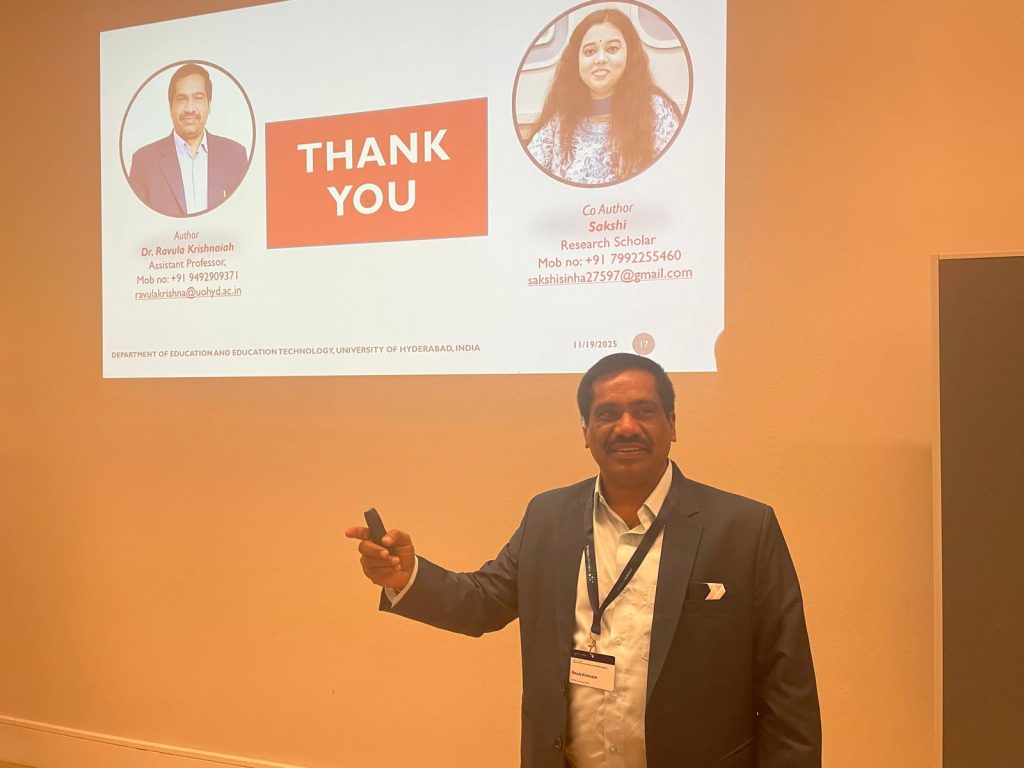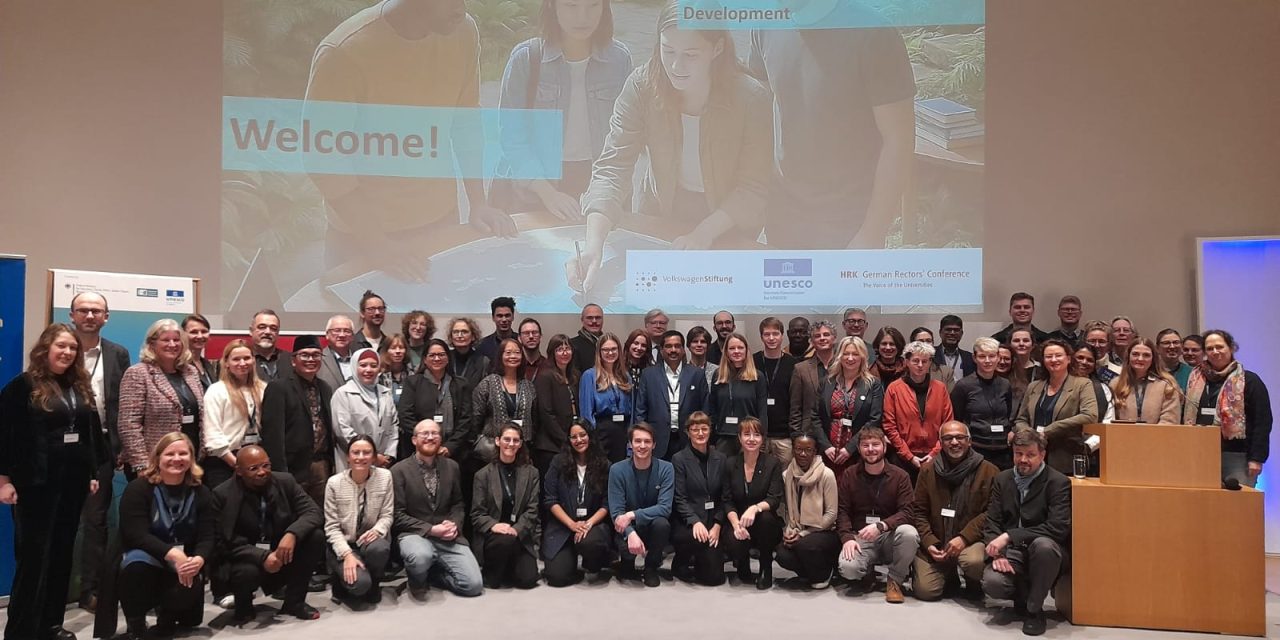The International Conference on Education for Sustainable Development (ESD), held from 19 to 21 November 2025, successfully convened global researchers, educators, policymakers and practitioners to discuss and advance transformative approaches to sustainability education. The conference began on 19 November with participant registration followed by welcome messages from representatives of Volkswagen Stiftung and Mr. Roman Luckscheiter, General Secretary of the German Commission for UNESCO. This was followed by an introductory session titled Widening Horizons, delivered by Bianca Bilgram, Jacobus Bracker and Maike Land, which provided a strong conceptual foundation for the conference by emphasizing interdisciplinary thinking, cross-cultural collaboration and global perspectives in sustainability education. The opening keynote, BOOSTing ESD: A Participatory, Research- and Action-Oriented Approach to Sustainability Transformation, presented by Prof. Annette Scheersoi of the University of Bonn, highlighted the significance of participatory learning, collaborative research and action-driven educational models in enabling sustainability transformation across higher education.
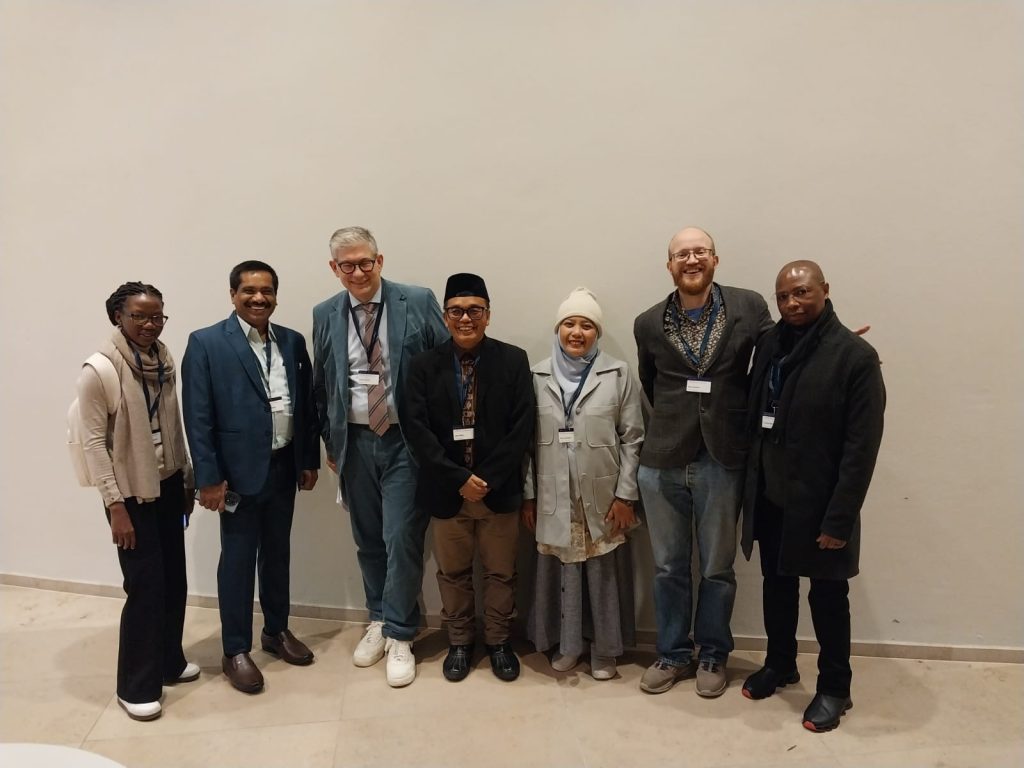
The first day progressed with multiple thematic streams that showcased research from across regions and disciplines. In Stream 1: ESD, Storytelling, and Arts-Based Methods, Dr. Ravula Krishnaiah presented the research paper authored by himself and co-authored by Ms. Sakshi, titled Indigenous Practices and Creative Instruction: Enhancing Sustainability via Storytelling in Higher Education. The presentation examined how Indigenous Knowledge Systems, narrative traditions and creative pedagogical methods can deepen sustainability understanding and cultural connection among learners. The paper received wide appreciation for its originality, cultural depth and contribution to integrating Indigenous perspectives into contemporary sustainability pedagogy. The day concluded with a keynote address titled The Earth Charter and the Education of the Future, delivered by representatives of Earth Charter International, which emphasized ethical leadership, ecological responsibility and value-based education as essential for shaping sustainable futures.
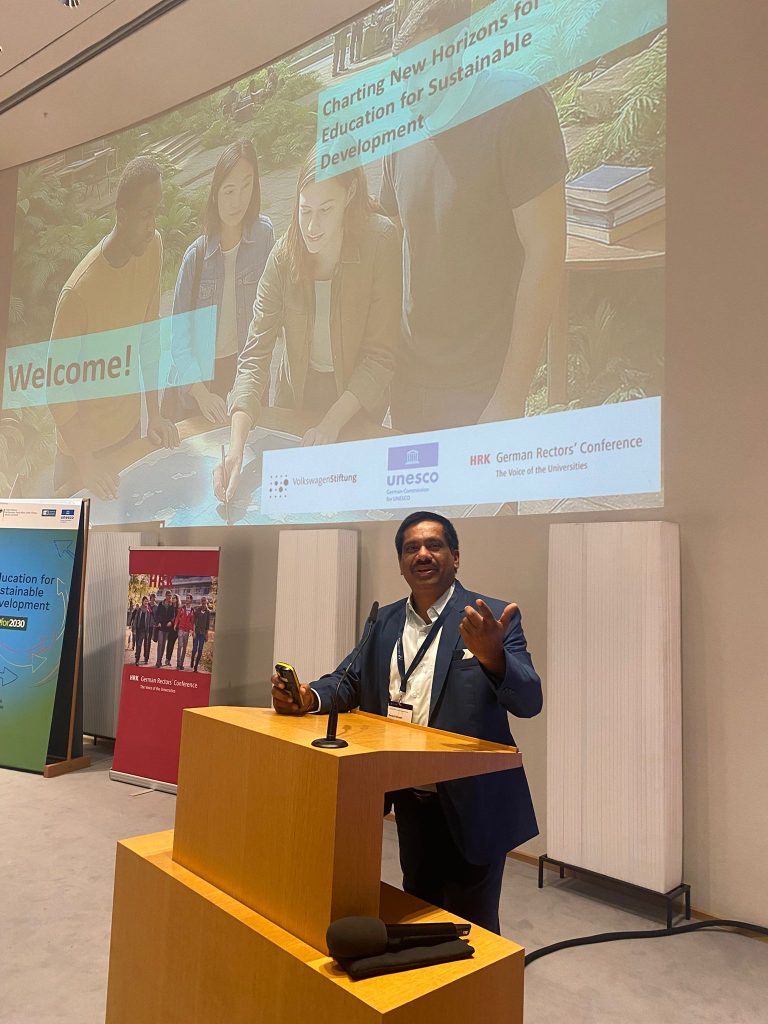
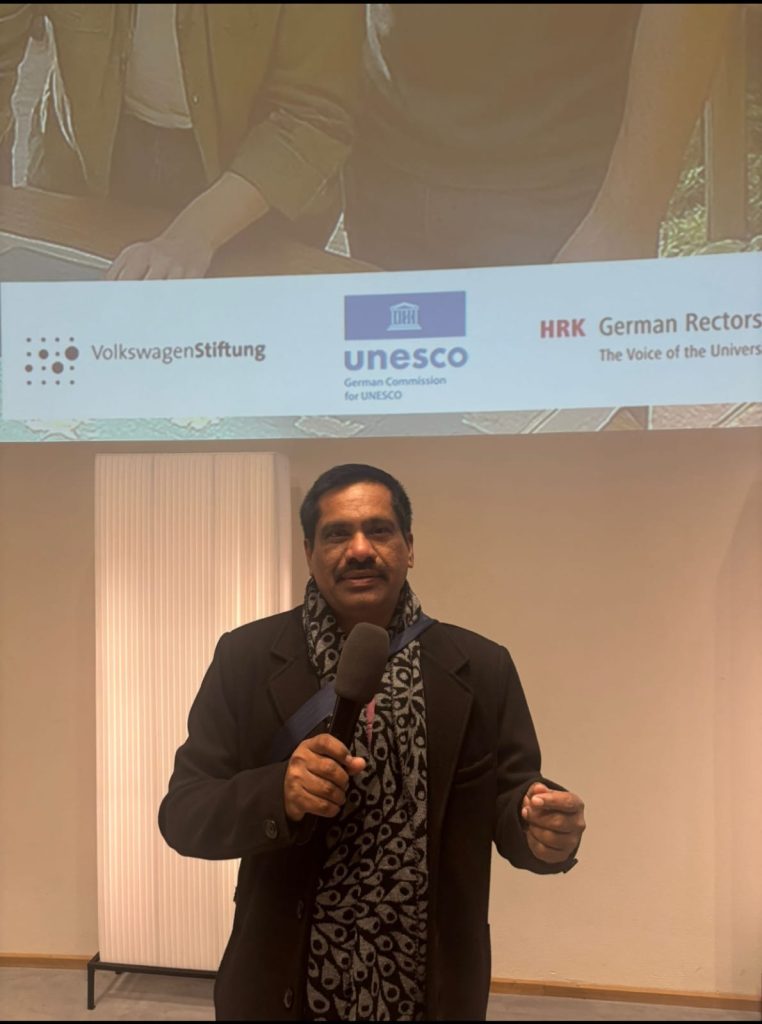
On 20 November, the second day of the conference commenced with welcome remarks by Prof. Dorit Schumann, followed by a keynote address delivered by Gertraud Koch of Universität Hamburg. The day included a series of parallel academic streams that covered emerging themes in ESD, global citizenship, environmental ethics, curriculum innovation and inclusive sustainability pedagogy. A major highlight was the keynote session by Edward M. Feasel, President of Soka University of America, on Creating Synergy Between Education for Sustainable Development (ESD) and Global Citizenship Education (GCED). His address explored the interconnectedness between global citizenship competencies and sustainability learning, presenting strategies for integrating both frameworks within higher education. Another significant session, Dialogue Between Nature and Culture, conducted by Victor Kelechi Heil and Jasmin Slaghekke, offered interdisciplinary insights on how ecological understanding and cultural worldviews can complement one another to support holistic sustainability practices.
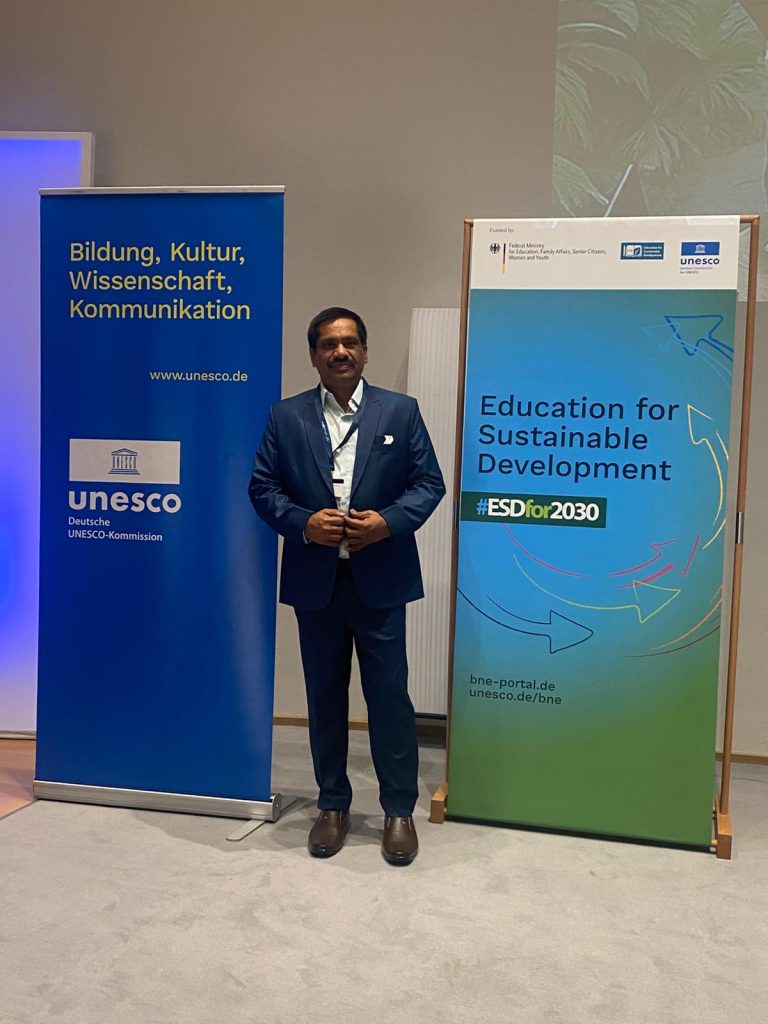
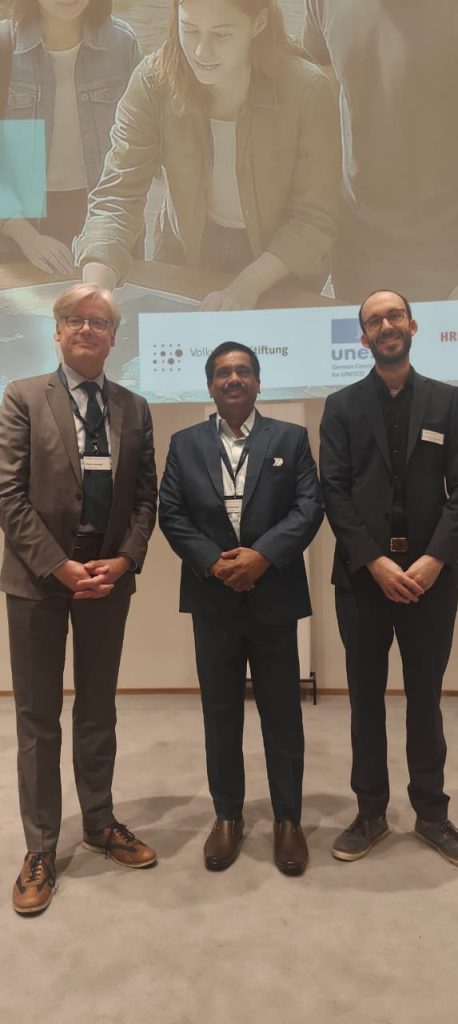
The final day of the conference, 21 November, featured an important keynote by Susanne Timm and Annette Scheunpflug from Universität Bamberg on the integration of ESD into teacher training as a crosscutting requirement within higher education. Subsequent parallel sessions explored innovative educational models, competency-based curriculum development and teacher preparation practices aimed at promoting sustainability literacy. The conference concluded with formal closing remarks by Bianca Bilgram, Jacobus Bracker and Maike Land, who expressed gratitude to all participants and emphasized the need for sustained global collaboration to advance Education for Sustainable Development in academic institutions worldwide. With this, the three-day international gathering successfully concluded, marking a significant milestone in fostering global dialogue, academic exchange and innovation in sustainability education.
